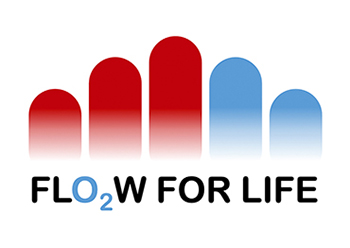Graduate School LSE

Associated Research Clusters
There are also various Research Clusters associated to the Graduate School Life Science Engineering network. Below you find a short overview.
Centre for Synthetic Biology

The newly established interdisciplinary Centre for Synthetic Biology combines the faculties of biology, chemistry and electrical engineering and information technology.
Synthetic biology describes the engineering approach of equipping biological cells with new molecular functionality. In contrast to traditional biotechnology, Synthetic Biology follows the principle of achieving this functionality through the composition of individual, well-characterised, standardised molecular components. New molecular biology methods, such as variants of the CRISPR gene scissors, are helping to achieve this.
ITN CC-TOP

CC-TOP is an Innovative Training Network from the Marie Curie Actions within the EU Horizon 2020 program focused on exploiting the potential benefits of C-C bond forming enzymes (“carboligases”) in the industrial synthesis of high value chiral compounds. A multidisciplinary range of techniques and training actions is combined to cover everything from enzyme discovery and optimisation to the design of industrial processes that allow using carboligases in real-life applications.
CompuGene

The goal of the LOEWE Research Cluster CompuGene is to develop computer-aided processes to enable the design of complex genetic circuits in biological systems. It combines disciplines like biology, mechanical and electrical engineering, chemistry, physics, informatics and philosophy in close collaboration with industry partners, such as BRAIN AG, Zwingenberg.
iNAPO

The LOEWE Research Cluster iNAPO – ion conducting nanopores – unites material science, chemistry, biology, physics and electrical engineering in close collaboration with the GSI Helmholtz-Zentrum für Schwerionenforschung in Darmstadt. It is focused on the construction of nanoscale sensors modeled after nature, to develop a new generation of nanosensors combining synthetic and biological nanopores.
TRABITA

The LOEWE research cluster TRABITA is active in the field of medicinal chemistry. Its special research focus is on transient binding pockets of therapeutically relevant target proteins and the development of binding molecules that modulate their function. In TRABITA, researchers from TU Darmstadt, Frankfurt University and the Darmstadt University of Applied Sciences combine their expertise for understanding protein dynamics and drug development.
Flow for Life
The goal of the LOEWE research cluster FLOW FOR LIFE is to develop an artificial network that transports oxygen and nutrients within lab-grown human tissue of a centimeter size scale. The project combines engineering with biological principles, and synthetic with biological materials.

SYNSENSO
SYNSENSO is a new Doctoral Network coordinated by the Technische Universität Darmstadt, that is set out to develop new, game-changing combinatorial biosensors. Funded within the framework of the Marie Skłodowska-Curie Actions (MSCA), SYNSENSO follows an interdisciplinary and cross-sectoral approach by bringing together academic and industrial experts from the fields of cell-free synthetic biology and molecular sensor design.
